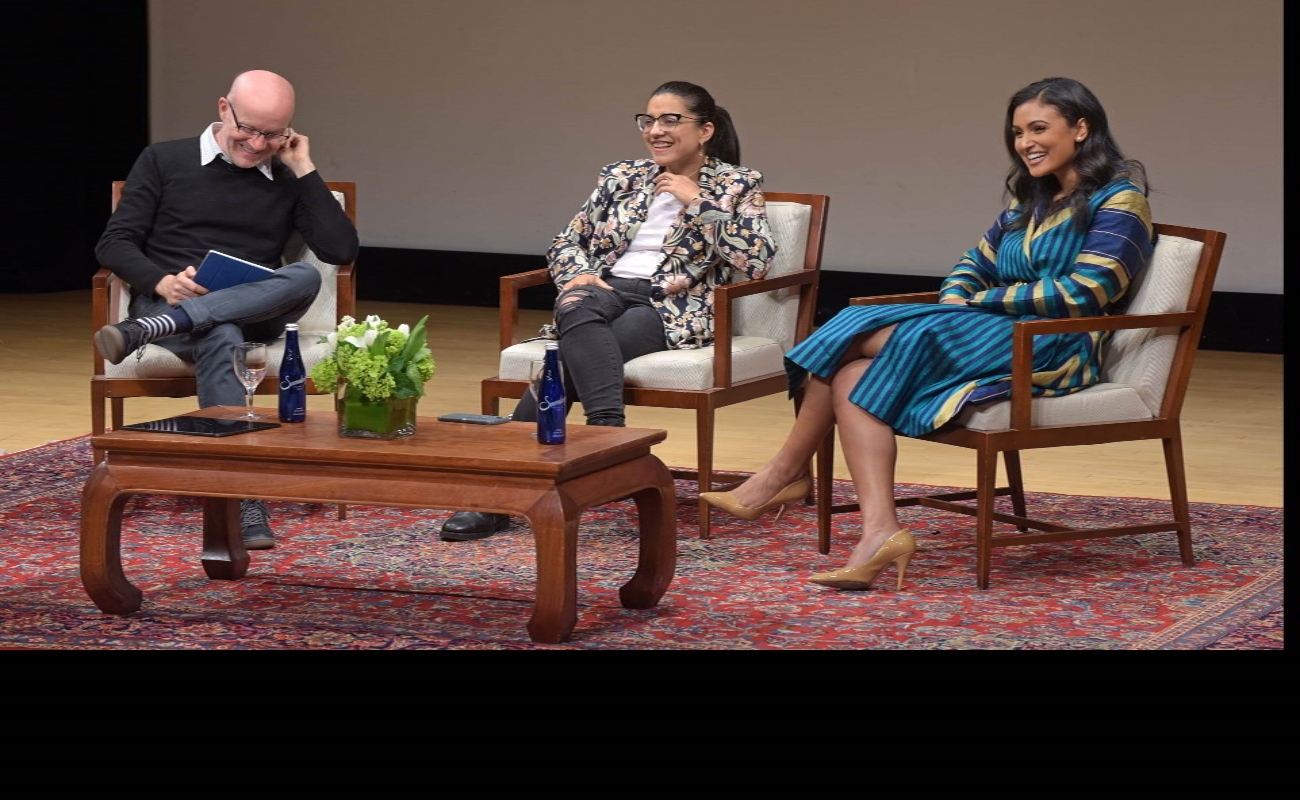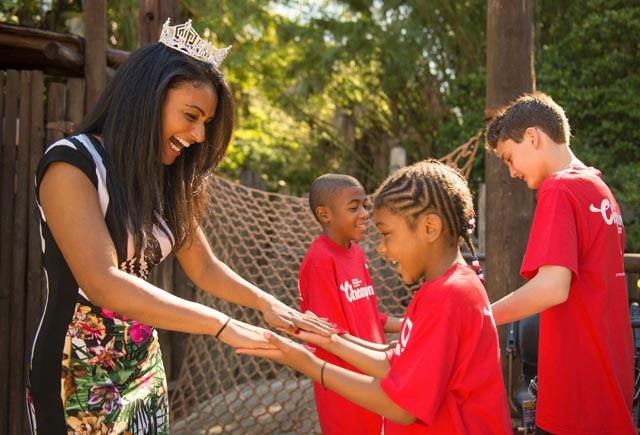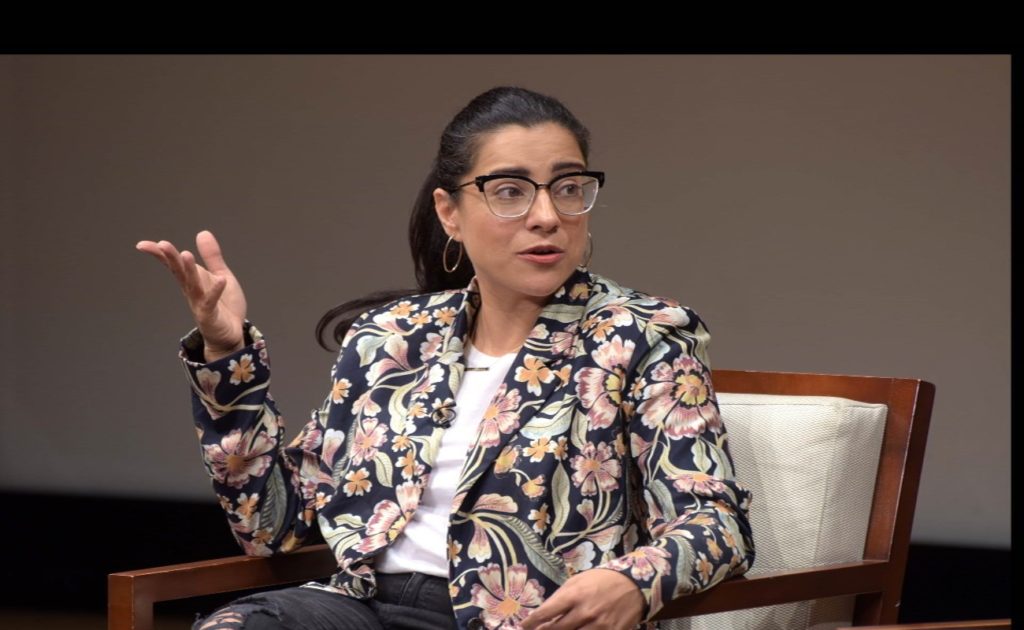5038 people reached on Lassi with Lavina FB page – 366 engagements
Aarti Desai Doshi, Jyoti Singh and 9 others like it on Lassi with Lavina FB page
Sonia Dandona Hirdaramani, Bhawana Singh Parihar and 2 others like it on Facebook
225 views on LinkedIn

Nina Davuluri and Reshma Saujani – Women Warriors
A Place for Indian-American Tech Entrepreneurs in America
[dropcap]B[/dropcap]etween them, Nina Davuluri and Reshma Saujani, both Indian-American entrepreneurs and advocates, have an impressive number of firsts to their name.
In a world of blonde-haired, blue-eyed beauties, Nina Davuluri became the first Indian woman to win the Miss America crown title and change the concept of what this icon could look like in a multicultural America. Using the power of her glittering crown, she was able to promote girls’ education and the unlikely subject of Stem studies to young people everywhere. She’s the first Indian-American to host her own reality show ‘Made in America’.

[dropcap]R[/dropcap]eshma Saujani was the first Indian woman – and the youngest – to stand for the US Congress, a decade ago. She’s also the first to create an organization which specifically teaches young girls technology. Her powerful nonprofit Girls Who Code has taught over 80.000 girls to code. It has after-school clubs in all 50 states, with 494 in New York alone. She jokes, “We’ve taught more girls to code than the entire department of education of New York!” She’s also the author of the New York Times best-seller, ‘Girls Who Code’ and the recent ‘Brave, Not Perfect’.
Both are the daughters of Indian immigrants, both have encountered racism and stereotypes and both have had to overcome challenges to forge new paths for Indian women.
Recently the two were at Asia Society in conversation with Andrew McLaughlin, who is the executive director of the Tsai Center for Innovative Thinking at Yale University. The discussion was about the continued under-representation of Asian women in the fields of science, technology, engineering and mathematics and stem sectors in the US.
[dropcap]B[/dropcap]oth Saujani and Davuluri are working in different ways to halt the gender gap in these fields and encourage more young Asian-American women to participate. There are the added hurdles of racism and stereotypes for many women, and both of them shared their own life experiences.
For Davuluri, both of whose parents are physicians, science and stem subjects were part of life even though she has herself has chosen a very different field. She jokes, “I’m the black sheep of the family. My parents often say, “Have you met our other daughter? She’s a doctor!” However, as early as 2nd grade, she recalls playing in a doctor’s coat and with a stethoscope, and insisting she wanted to be a cardiologist, much to the joy of her parents. Even as she tried out for Miss America, she planned for medical school. A graduate of University of Michigan, Davuluri did all the right desi things – made the Dean’s list, bagged the Michigan Merit Award and was also in the National Honor Society. She says, “Growing up I didn’t think I couldn’t do it – I thought science and math were the norm, that they were what everyone did – so it wasn’t scary.”
Yet that has not been the case with many Indian women who have felt these subjects were outside their realm. Reshma Saujani, the child of immigrants who fled from Idi Amin’s Uganda as refugees in the 70’s, first to the UK, and then the US, never felt comfortable with math and science, even though both her parents were engineers who had graduated from India.

[dropcap]S[/dropcap]tarting a new life in America, for her parents it was always about making the most of the hard-won opportunity in America for their children’s future. She recalls, “My father and mother spent most of their time trying to fit in so my father would go to Toastmasters class to get rid of his accent and my mother stopped wearing sarees and bindis. They were conscious about our food so we’d also eat spaghetti, pizza and macaroni and visit Taco Bell.”
Both Davuluri and Saujani’s immigrant parents tried to fit into an America which had more opportunities for the mainstream, and had to handle racism and stereotypes, even as they drew strength from their own immigrant communities with its emphasis on shared food, religion and festivals.
For Saujani, her parents’ refugee experiences had strong lessons in assimilating in America. She says, “I had a narrative in my head of my parents and their struggle. They had never participated in the political process and this is what happens when you don’t participate – you get a dictator, you get your rights taken away and you have to leave your country and your home.” Politics became Saujani’s passion – she went to Yale Law School, became a high-powered attorney, and got involved in every election. At the age of 30, she even ran for the US Congress.
As she admits she lost spectacularly: “It was bad. I’m humiliated and I’m broke and I haven’t worked in ten months. I had no contingency plan – I thought I was going to win. Yet it was the most joyful ten months of my life. I had gotten a taste of change-making, a taste of public service.”
That experience became the building blocks for Girls Who Code, an organization which bridges the gap between the worlds of the haves and have-nots by making technology accessible to all, with a nationwide intervention.
[dropcap]F[/dropcap]or Asian-Americans, the struggle to be assertive often begins at home, due to cultural conditioning. Recalls Nina Davuluri, “In my household we were told to keep your head down, work hard and that’s what you do. You followed directions and you followed the rules.” She says it was over the years she learned that it was important to speak up. “You are your best advocate and if you don’t speak up, no one else will. Learning to speak up is something you actively have to learn to do.”
Reshma Saujani agrees that in the Asian mindset, no success is ever enough success and you never believe you’re ever good enough, a big hurdle when it comes to asking for promotions.
While Nina Davuluri continues to be an advocate and speaker for STEM education and women’s equity, she is also working on a documentary about skin-lightning creams and its disturbing effect in several Asian countries.
Reshma Saujani says “I want to take myself out of business. With Girls Who Code I want to close the gender gap and I think we are on our way to building a pipeline.” She plans to take Girls Who Code to Canada, UK and India, and feels it’s imperative to bring people together globally.
As she points out women face racism and sexism every day but still have to fight their own perfectionism which keeps them sidelined and holds them back. “We have so much to unteach and build new strategies, if we are ever going to have a chance at gender equity.”
(This article was first published in my column ‘India in America’ in CNBCTV18.com )
Related Articles:

Catching Up with Miss America – Nina Davuluri!


2 Comments
Rajni Menon via Facebook
Awesome!
Angela Anand via Facebook
Good motivating stories!!